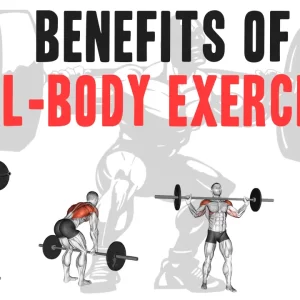Contents
One of the toughest things to do is build muscle mass. Doing so requires more than just a quick fix or a couple of days at the gym. It requires a strategic and consistent approach to the gym, combined with smart nutrition and maybe a few supplements thrown in for good measure.
Given the difficulty of building muscle, bodybuilders and other athletes are naturally skeptical of any product claiming to juice results. Most of them come across as way too good to be true. But what about peptide therapy? Peptides have been getting a lot of attention in the world of personal fitness, but are they really everything they’re cracked up to be?
These days we’re seeing peptides for sale everywhere, but before you make a purchase, it may be wise to get a little more insight.
Peptides at a Glance
It’s critical to understand that peptides are nothing new. Far from it. Actually, your body is full of countless peptides right now, and all of them are essential to your overall health and function.
A peptide is basically a string of amino acids, used as building blocks for more complex proteins. As such, peptides play an essential role in regulating a number of your bodily functions, not least the growth and development of muscle.
As you can probably imagine, health and wellness innovators have been eager to harness the power of peptides. So, a number of synthetic peptides have been introduced in the past few years. These peptides are not naturally occurring, but they are made to replicate the biochemical structures found within your body. In other words, synthetic peptides are generally considered to be highly biocompatible.
Peptides and Muscle Growth
Now let’s get into the specific aspects of peptide therapy and muscle growth.
There has already been a significant body of scientific research performed, highlighting various ways in which peptide therapy can expedite muscle growth. Of course, this research spans many different types of peptide products, but consider just a few highlights:
- A study regarding pea peptide therapy indicates that taking peptide supplements, combined with the right workout and training regimen, can significantly improve the development of muscle mass.
- An animal trial involving BPC-157, one of the most popular peptide therapies, confirms the possibility of muscle healing and repair, which can be an important consideration for bodybuilders looking to accelerate their recovery and further growth.
- An additional study suggests that BPC-157 can be an effective way to stimulate new blood flow to your muscle mass, yet another important way to facilitate growth.
The bottom line: While scientific consensus is still forming, there is plenty of preliminary evidence showing that peptide therapy can be a catalyst for growing muscle mass.
Is Peptide Therapy Safe?
Of course, before starting any new supplement, it’s critical to take stock of any safety concerns.
While changing your fitness routine can always invite risk, the risks associated with peptide therapy are generally very mild. Again, peptide therapy offers a high degree of biocompatibility; for instance, BPC-157 is derived primarily from human gastric juices, meaning there is nothing in it that’s foreign or alien to the body. As such, the risk of bodily rejection is low.
The science backs this up. For instance, one noteworthy study confirms that peptide therapies are safe and well-tolerated, with side effects generally quite mild and fairly uncommon.
Is peptide a steroid?
No, peptides are not steroids. Although both peptides and steroids can have biological impacts, they are distinct molecules with differing structures and mechanisms of action.
Peptides and steroids exhibit similarities but are fundamentally different. One crucial distinction is that steroids artificially elevate testosterone levels in the body, while peptides enhance the signaling process, prompting the body to naturally produce more of this hormone.
Therefore, peptides represent a safer option compared to steroids, despite the continued use of steroids by many athletes and bodybuilders. It’s worth noting that steroids and peptides serve different roles and purposes. For simplification, this article uses the example of testosterone and muscle building to illustrate the basic differences between them.
How are Peptides Administered?
Another common question from athletes and bodybuilders: What’s the method for administering peptides?
The short answer is that it depends on the peptide, and it depends on the person. Many peptides are available orally, which is probably the most convenient option. Alternatively, there are a number of peptides that are available via injection. Many proponents say that injectables work more robustly, offering a higher level of bioavailability.
What’s the Best Way to Start Using Peptides?
If you’re interested in adding peptide therapy to your workout routine, there are a few steps that you should follow.
- First, always make sure you talk with a doctor or trainer, simply to ensure that peptide therapy is right for you. This is especially important if you are taking other medications or supplements, and have concerns about adverse reactions.
- With any supplement, it’s important to pay attention to who you’re buying from. Always seek manufacturers based in the USA, adhering to strict standards of product quality and purity. This is probably the single most important thing you can do to ensure your own safety.
- If your peptide therapy comes with a range of possible doses, it’s generally best to start at the low end. Monitor the effects, and work your way up to a higher dose only as needed.
Using Peptides to Develop Muscle Mass
The bottom line: Building muscle is hard, and to do it effectively, you’ll need to use every tool at your disposal. Peptide therapy may be a good addition to your toolkit. Consider how the use of peptides may be a safe and effective way for you to supercharge your workout routine.
The Bottom Line
The legality of peptides is a significant concern for many researchers looking to buy them online. When prescribed by a licensed healthcare provider for a legitimate medical purpose, using FDA-approved peptides is generally considered legal. However, off-label use or self-administration of peptides without proper medical supervision can lead to legal consequences and potential health risks.
References
Jia, S., Wu, Q., Wang, S., Kan, J., Zhang, Z., Zhang, X., Zhang, X., Li, J., Xu, W., Du, J., & Wei, W. (2022). Pea Peptide Supplementation in Conjunction With Resistance Exercise Promotes Gains in Muscle Mass and Strength. Frontiers in Nutrition, 9. https://doi.org/10.3389/fnut.2022.878229.
Chang, C., Tsai, W., Hsu, Y., & Pang, J. (2014). Pentadecapeptide BPC 157 Enhances the Growth Hormone Receptor Expression in Tendon Fibroblasts. Molecules, 19, 19066 – 19077. https://doi.org/10.3390/molecules191119066.
Hsieh, M., Liu, H., Wang, C., Huang, H., Lin, Y., Ko, Y., Wang, J., Chang, V., & Pang, J. (2017). Therapeutic potential of pro-angiogenic BPC157 is associated with VEGFR2 activation and up-regulation. Journal of Molecular Medicine, 95, 323-333. https://doi.org/10.1007/s00109-016-1488-y.
Fosgerau, K., & Hoffmann, T. (2015). Peptide therapeutics: current status and future directions.. Drug discovery today, 20 1, 122-8 . https://doi.org/10.1016/j.drudis.2014.10.003.
Authors contributing to this article:

Amanda E. Clark is a contributing writer to Paradigm Peptides. She has experience in writing about health and supplements topics, including holistic remedies such as peptide therapy.



